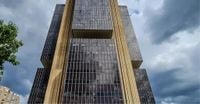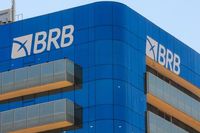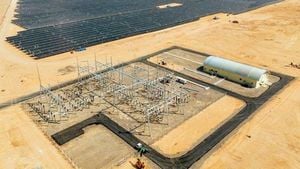On March 28, 2025, the Banco de Brasília (BRB) confirmed its acquisition of a majority stake in Banco Master for an estimated R$ 2 billion, marking a significant move in the Brazilian banking landscape. This deal, which grants BRB 58% of Banco Master’s capital, is poised to reshape the market dynamics as the public bank seeks to expand its influence and credit volume.
The agreement entails BRB purchasing 49% of Banco Master's ordinary shares and 100% of its preferred shares, with the purchase price set at 75% of Banco Master's net equity at the time of closing. The transaction was unanimously approved by BRB's board but still awaits clearance from the Administrative Council for Economic Defense (Cade) and the Central Bank of Brazil (BC).
According to reports from major Brazilian newspapers, the market reacted with a mix of surprise and skepticism to the announcement. Analysts expressed concerns regarding the financial risks associated with the acquisition and questioned the political motivations behind the deal. Despite these reservations, BRB’s shares surged, reflecting investor optimism about the bank's potential growth.
Paulo Henrique Costa, the president of BRB, emphasized the strategic importance of this acquisition, stating that it positions the bank to become one of the largest institutions in Brazil by credit volume. If completed, BRB is projected to rank as the ninth largest bank in the country.
However, the deal does not come without complications. It has been reported that André Esteves, the CEO of BTG Pactual, is negotiating to acquire riskier assets from Banco Master, including precatórios and equity stakes. This parallel negotiation aims to mitigate the financial exposure of BRB and reduce regulatory risks associated with the acquisition.
Market analysts have pointed out that Banco Master has garnered a reputation for aggressive fundraising through Certificates of Deposit (CDBs), offering returns as high as 140% of the CDI. This strategy has raised concerns about the sustainability of its financial practices, especially given the bank's substantial liabilities, which are reportedly close to R$ 60 billion—almost half of the total covered by the Credit Guarantee Fund (FGC).
In light of these developments, Gianluca Di Mattina, an investment specialist at Hike Capital, noted that investors holding CDBs from Banco Master might benefit from increased security under BRB's stewardship. He reassured that these financial instruments remain protected by the FGC, which insures deposits up to R$ 250,000 per individual per institution.
Moreover, the acquisition is expected to enhance the risk profile of Banco Master, potentially leading to a more stable investment environment for current and future clients. Investment experts, including Andressa Bergamo of AVG Capital, echoed this sentiment, suggesting that the deal could instill greater confidence among investors, particularly after previous concerns surrounding Banco Master’s financial health.
Despite the anticipated benefits, experts advise caution. Bergamo pointed out that while the FGC covers R$ 250,000 per institution, investors must consider the total amount they hold across both Banco Master and BRB to ensure adequate coverage.
From a practical standpoint, Marcelo Moraes, a professor of Business Law at Uniarnaldo Centro Universitário, indicated that clients of Banco Master will see their financial assets transferred to BRB, necessitating a shift in how they operate their accounts. He expressed confidence in BRB's stability, suggesting that customers are unlikely to encounter significant issues during this transition.
As the acquisition process unfolds, it is crucial for stakeholders to monitor its progress closely. The Central Bank has a legal timeframe of 360 days to evaluate the transaction, but Costa is optimistic about receiving a decision within six months. He met with Gabriel Galípolo, the president of the Central Bank, on March 31, to discuss the acquisition's implications.
In the backdrop of these developments, the political ramifications of the deal have not gone unnoticed. Critics argue that the structure of the acquisition, which allows Vorcaro to maintain control of Banco Master, raises concerns about the effectiveness of BRB's governance. This arrangement could potentially circumvent the need for legislative approval in the Federal District, leading to accusations of institutional protectionism.
As the financial community continues to scrutinize the implications of this acquisition, the consensus remains cautious yet hopeful. The transaction not only represents a significant shift in the Brazilian banking sector but also highlights the intricate interplay between finance and politics in the country.
In summary, the acquisition of Banco Master by BRB marks a pivotal moment in Brazil's banking landscape, promising to enhance the stability and governance of the financial sector. However, as analysts remain vigilant, the long-term effects of this deal will depend on the successful navigation of regulatory hurdles and the effective integration of the two institutions.








